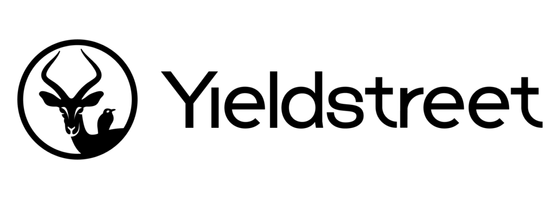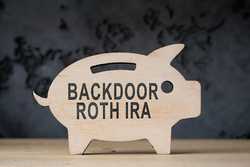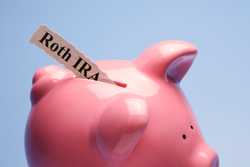While most any investor can access stocks, bonds, and exchange traded funds (ETFs), alternative investments—such as art, real estate, and venture capital (VC)—have typically been for high-net-worth investors. Yieldstreet brings these private-market alternatives to everyday investors, allowing them to gain access to a growing list of asset classes outside of the traditional stock and bond markets. While it does have drawbacks—including higher-than-average minimum investments and fees—depending on your financial situation, Yieldstreet may be a way to further diversify your portfolio.
TIME’s Take
For serious investors ready to step into the world of alternatives—but who haven’t quite met the requirements to become accredited—Yieldstreet offers a great lily pad. (And it’s also a solid platform for accredited investors looking to buy alternatives à la carte.)
However, with its high account minimums and fees, months-long money lockups, and higher-than-average risk potential, Yieldstreet isn’t among the best online brokers we’d recommend for beginners.
Diversify your portfolio with YieldStreet
Fees
0% - 2% (varies by investment type)
Minimum investment
$10,000
Accounts offered
Alternatives brokerage, IRA
Available investments
Real estate, venture capital, private equity, private credit, short term notices, structured notes, diversified funds, transportation, art, legal finance
Who is Yieldstreet best for?
Yieldstreet works best for investors who:
- Have a relatively high amount of investment capital.
- Are willing to make higher-risk investments for higher potential returns.
- Are looking for an accessible way to diversify an existing stock and bond portfolio with alternative investments.
- Want to gain access to a particular kind of alternative asset, like real estate, art, or VC.
Yieldstreet Pros and Cons
Like any investment platform—and any financial product, for that matter—Yieldstreet has both benefits and drawbacks to consider.
Pros:
- Alternative, private-market investments—including art, cryptocurrency, and real estate—are available
- Access available for both accredited and non-accredited investors
- Easy-to-navigate web portal and highly rated mobile apps
- Potential for substantial investment returns
Cons:
- Investment minimums hover between $10,000 and $25,000—inaccessible for some beginning investors
- Management fees may be as high as 4%
- Speciality investments are more speculative and higher risk, per Yieldstreet’s fine print
- Limited liquidity—lock-up periods and terms start at three months and go up to five or more year
Benefits of Yieldstreet
Here’s what Yieldstreet's got going for it:
Access to alternative asset classes
Yieldstreet’s main appeal is its ability to grant access to alternative asset classes to everyday investors. With Yieldstreet's one-stop-shop platform, investors can purchase interest in commercial real estate, artwork, venture capital investments, consumer loans, and more.
Yieldstreet allows investors to choose their assets by class, minimum, term, or strategy, with offerings listed by their potential to generate distribution income, appreciate during the selected term, or a balance of the two. Some assets are also eligible to be invested as part of an IRA portfolio, expanding investors’ retirement options.
Available to investors regardless of accreditation status
The Securities and Exchange Commission (SEC) has rules that define which investors are accredited—and therefore eligible to trade in certain asset classes such as venture capital or private equity . In general, accredited investors must meet steep income and net worth thresholds and be sophisticated in that they understand what they are investing in and the risks involved.
Yieldstreet's Prism Fund makes it possible even for non-accredited investors to access securities usually reserved for accredited investors. (However, investors must be accredited to invest in single asset class offerings, even on Yieldstreet.)
Easy-to-navigate interface
Yieldstreet's online portal offers a user-friendly experience with enough guidance to help you find your way without getting in the way. Portfolio-management tools include a sample portfolio and simulator, private investment screener, and educational resources.
Return potential
One of the main reasons investors are attracted to alternatives is their higher-than-average growth potential—and their resiliency during market turndowns. Yieldstreet's platform allows investors to buy into these high-return-potential asset classes without the capital that would typically be required.
What can be improved with Yieldstreet?
Here’s what potential Yieldstreet investors need to consider carefully.
High minimum investment
While Yieldstreet provides non-accredited investors access to securities that might otherwise be out of reach, investment minimums begin at $10,000. This still may be too high for investors just getting their feet wet.
High fees
Along with high investment minimums, Yieldstreet has higher-than-average account management fees, which isn’t entirely unusual for more sophisticated investments than your typical ETF or mutual fund. Although the specifics depend on which offerings you choose, fees range from 1% to 4% annually. Additionally, there may also be annual flat fees related to specific investments.
Limited liquidity
Unlike traditional stock market investments, which can usually be sold and liquidated in a matter of hours, alternative investments may require investors to lock up their money for a time. Yieldstreet's lockup terms start at three months.
Higher risk
Any type of investment is always subject to risk. But per Yieldstreet's own fine print, “Investments in private placements are speculative and involve a high degree of risk and those investors who cannot afford to lose their entire investment should not invest.”
While this isn’t necessarily something that Yieldstreet itself could stand to improve, it’s a fact investors interested in alternatives should consider carefully before putting their money on the line with this platform—or any other.
How Yieldstreet stacks up to the competition?
While Yieldstreet has higher fees and minimums than many of other online brokers, it also offers asset classes most investors can’t access on other platforms. Its account type offerings are limited in scope, however. Additionally, Yieldstreet's Better Business Bureau (BBB) ratings of 2.5 of 5 stars and Trustpilot customer ratings of 2.6 of 5 stars leave something to be desired. On the other hand, its four competitors don’t rank well, either, for the most part.
|
| | | | | |
| Alternatives brokerage, IRA | Individual, joint, entity, and trust alternatives brokerage accounts; IRAs | Individual and joint brokerage; traditional, Roth, and SEP IRAs | Cash and margin brokerage, cryptocurrency, traditional and Roth IRA | Individual and joint brokerage; custodial; traditional, Roth, and rollover IRA; Coverdell |
| Real estate, venture capital, private equity, private credit, short term notices, structured notes, diversified funds, transportation, art, legal finance | Real estate, private credit, venture capital | ETFs, stocks, cryptocurrency, IPOs, SPAC IPOs, margin trading | Stocks, ETFs, options, cryptocurrency, margin trading | Stocks, bonds, ETFs, mutual funds, options, low-priced securities |
| 0% - 2% (varies by investment type) | Advisory fee of 0.15%; annual flat 0.85% management fee for real estate funds; annual flat 1.85% management fee for Innovation Fund; optional Fundrise Pro option at $10 per month or $99 per year | $0 stock & ETF trades; 0/contract options trades; 1.25% crypto fee. | $0 commissions (other fees may apply) Gold subscription fee applies after 30-day free trial | $0 stock & ETF trades; $0.50/contract options trades; $0 mutual fund trades; $1 bond trades |
Customer service ratings/Trustpilot/BBB | 2.5/5 stars (T); 2.6 /5 stars (BBB) | 1.8/5 stars (T); 3.5/5 stars (BBB) | 4.7/5 stars (T); 1.68/5 stars (BBB) | 1.3/5 stars (T); 1.08/5 stars (BBB) | 1.2/5 stars (T); 1/5 stars (BBB) |
Yieldstreet: In-depth review
Let’s take a closer look at Yieldstreet's offers and features.
Usability
Yieldstreet’s interface has enough integrated tools and educational options to make the planning and trading process transparent and enjoyable. The onboarding process is also quick and easy, and the platform is available online, as well as on both Android and Apple devices.
Investment options
Yieldstreet shines for its alternative investment options, which are seldom available to non-accredited, everyday investors. While Yieldstreet’s platform does not allow you to trade in stocks, bonds, ETFs, and mutual funds, investors can choose from a range of alternatives including art, real estate, venture capital, private equity and debt, and more—all without needing the hefty capital generally required by these sorts of investments.
Technology
Yieldstreet’s technology is clean and easy to use and its platform is available for mobile devices as well as web interfaces. Its integrated tools, like the sample portfolio and simulator and private investment screener, empower investors with the information they need to make informed choices.
Costs
As mentioned, Yieldstreet’s services come at a higher cost than many other online brokers’, though this makes sense given the types of assets Yieldstreet investors are able to access. Still, management fees of up to 4% could cut considerably into investment returns, especially given the risk level of alternative asset classes.
Education
Since Yieldstreet offers alternative investment options that may be more obscure to lay investors—after all, they’re not usually available to them—educational resources are even more critical for the platform. Fortunately, it offers a range of educational insights to help investors find their way, with an online blog platform populated by hundreds of articles.
Customer service
Even among the best online brokers, customer service tends to be a sticking point. But Yieldstreet does offer a variety of ways to get in touch, including phone, text, and email customer support. It has received somewhat lackluster reviews on both Trustpilot and the Better Business Bureau.
Social features
While Yieldstreet doesn’t have any ready-made features to integrate with social media as far as TIME can tell, it does support well-reviewed applications on both Android and Apple devices.
Security and reliability
Yieldstreet enacts a number of measures to ensure customer security and the reliability of their platform, including mandatory two-factor authentication, data encryption technology, and redundant infrastructure. The company is digiCert certified as a secure site for sending and receiving sensitive information.
Company reputation
Yieldstreet was founded in 2015. In September 2023, Yieldstreet agreed to pay $1.9 million to settle SEC charges for “failing to disclose critical information to investors in a $14.5 million asset-backed securities offering.” In agreeing to settle, Yieldstreet did not admit or deny the SEC's findings.
How does Yieldstreet make money?
Yieldstreet makes money by charging listing fees to the parties originating investment offerings for investors, as well as through its account management fees on the investor side.
Other Yieldstreet services
Yieldstreet is primarily an investment platform focused on alternative investments. It does not provide banking or other financial services.
TIME Stamp: Yieldstreet makes alternatives accessible
While it comes with its own array of risks and drawbacks, Yieldstreet makes alternative investment classes—which might otherwise be out of reach for the everyday investor—accessible. However, its high account minimums and associated fees may still knock some new investors out of the running, and those who want to invest in single-asset class offerings will still need to be accredited investors.
Diversify your portfolio with YieldStreet
Fees
0% - 2% (varies by investment type)
Minimum investment
$10,000
Accounts offered
Alternatives brokerage, IRA
Available investments
Real estate, venture capital, private equity, private credit, short term notices, structured notes, diversified funds, transportation, art, legal finance
Frequently asked questions (FAQs)
Is Yieldstreet risky?
Every type of investment involves risk, and Yieldstreet’s offering of alternatives is no exception. According to Yieldstreet, alternatives have been shown to outperform traditional investments in terms of growth and to withstand market volatility (as in the Great Recession of 2008 and during the height of the Covid-19 pandemic). However, alternatives are also known to be riskier than traditional asset classes such as stocks and bonds, and have the added detriment of less liquidity. Per Yieldstreet’s own fine print, “those investors who cannot afford to lose their entire investment should not invest.”
What is the average return on Yieldstreet?
According to Yieldstreet, its net annualized return is 9.6%, with specific returns varying depending on the type of investment. (Its legal finance asset class, for example, has a net annualized return of more than 13%.)
Which is better, Fundrise or Yieldstreet?
Both Fundrise and Yieldstreet allow everyday investors to buy into alternative investments like real estate, venture capital, and private credit. But the platforms have substantial differences. While Yieldstreet offers more diverse asset classes, it also comes with substantially higher minimum investments than Fundrise. Fundrise members can get started with as little as $10 for a taxable brokerage account, whereas Yieldstreet investors will need at least $10,000.
How much can you make on Yieldstreet?
No one can accurately predict an investor’s specific returns, especially in the more highly volatile world of alternatives. However, according to Yieldstreet, its investor members have seen some $2.3 billion in returns, with more than $4 billion invested collectively. Its most popular asset classes include real estate and short term notes, though its legal class boasts the highest net annualized return.






